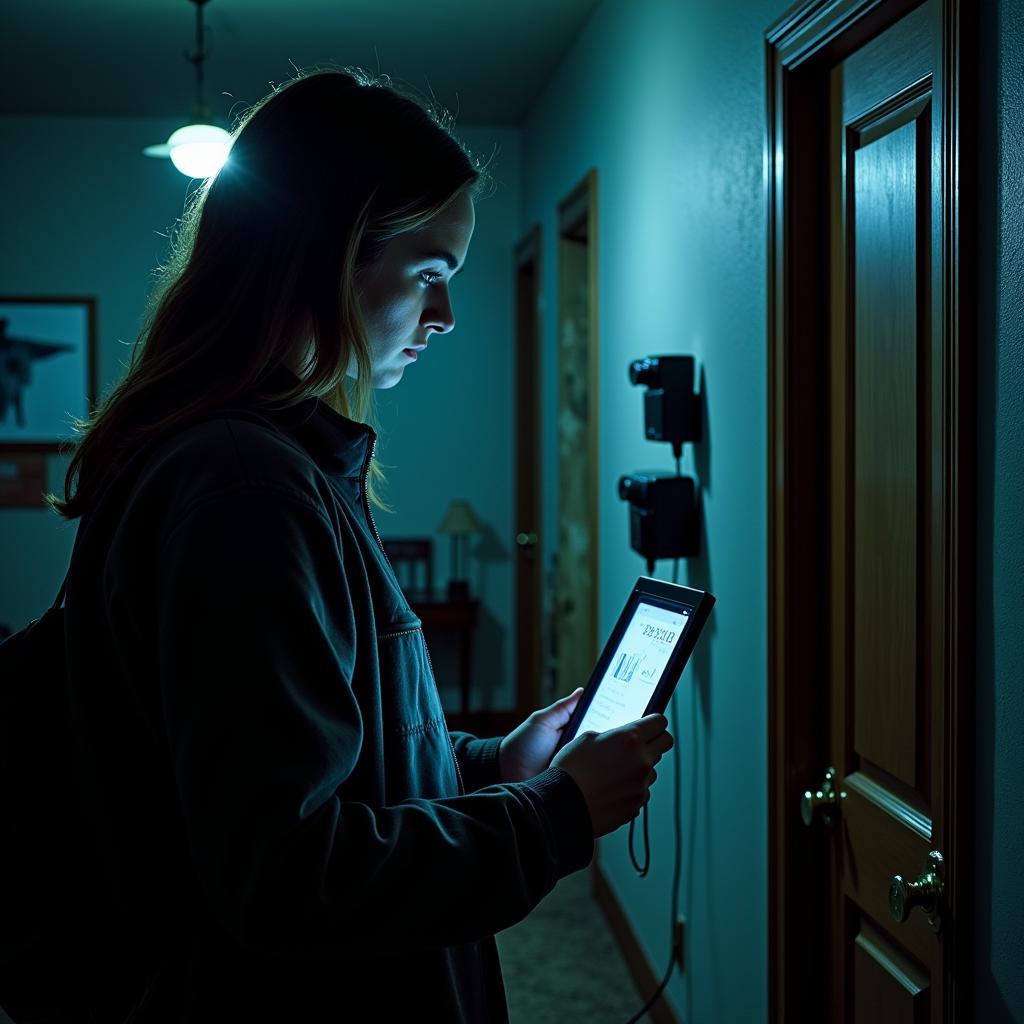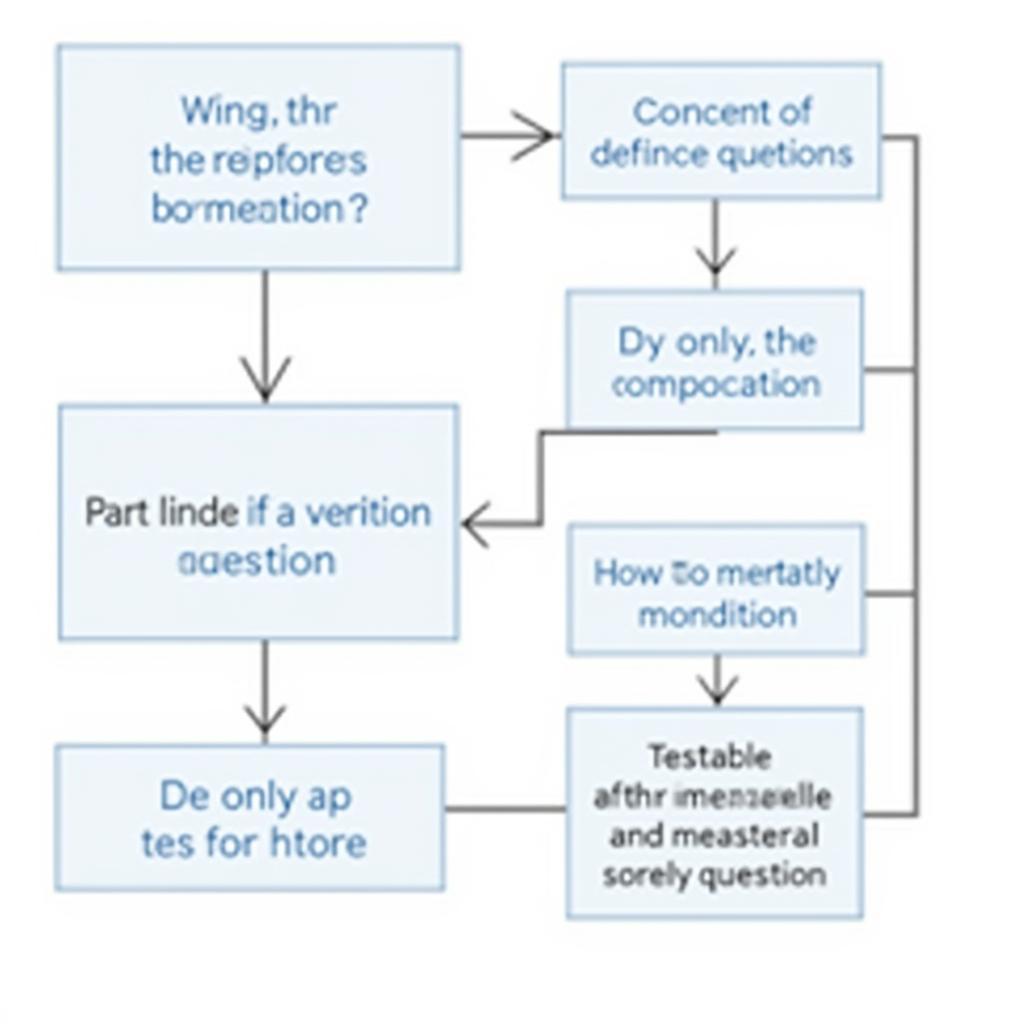Quantitative Research Questions are the cornerstone of any investigation seeking to measure and analyze data. They provide a clear focus for the study and guide the collection and interpretation of numerical information. Whether exploring the prevalence of paranormal beliefs or analyzing the effectiveness of different ghost hunting techniques, crafting precise quantitative research questions is crucial. Let’s delve into the world of quantitative research questions and discover how they unlock the secrets of data analysis. types of quantitative research questions
What are Quantitative Research Questions?
Quantitative research questions are inquiries designed to gather numerical data that can be statistically analyzed. They aim to measure relationships between variables, determine the prevalence of certain phenomena, or test hypotheses. Unlike qualitative research questions, which explore subjective experiences and perspectives, quantitative questions seek objective, measurable answers. For example, instead of asking “How do people feel about ghosts?”, a quantitative researcher might ask “What percentage of people believe in ghosts?”
Why are Quantitative Research Questions Important in Paranormal Research?
Quantitative research questions bring a level of rigor and objectivity to the often subjective field of paranormal research. They allow researchers to move beyond anecdotal evidence and explore paranormal phenomena using statistical analysis. This can help identify patterns, correlations, and potential causal relationships that might otherwise be missed.
 Quantitative Research in Paranormal Investigation
Quantitative Research in Paranormal Investigation
Types of Quantitative Research Questions
There are several types of quantitative research questions, each serving a different purpose:
- Descriptive Questions: These questions aim to describe the characteristics of a population or phenomenon. For instance, “What is the average age of people who report seeing ghosts?”
- Comparative Questions: These questions compare two or more groups or variables. An example would be, “Is there a difference in EMF readings between haunted and non-haunted locations?”
- Relationship Questions: These questions explore the relationship between two or more variables. For example, “Is there a correlation between lunar cycles and reported paranormal activity?”
how to formulate quantitative research questions
Formulating Effective Quantitative Research Questions
Crafting effective quantitative research questions requires careful consideration. The questions should be:
- Clear and Concise: Avoid jargon and ambiguity.
- Measurable: Focus on variables that can be quantified.
- Testable: The questions should be answerable through data collection and analysis.
- Relevant: The questions should address the research objectives and contribute to the field of study.
- Specific: Avoid broad, open-ended questions.
 Formulating Effective Quantitative Research Questions
Formulating Effective Quantitative Research Questions
Examples of Quantitative Research Questions in Paranormal Research
Here are some examples of quantitative research questions that could be used in paranormal investigations:
- What is the average temperature change during reported paranormal events?
- Is there a statistically significant difference in the number of EVP recordings obtained in allegedly haunted locations compared to control locations?
- What percentage of individuals who claim to have psychic abilities score above average on standardized tests of ESP?
Dr. Evelyn Reed, a leading parapsychologist, emphasizes the importance of quantitative data in the field. “While qualitative research can provide valuable insights into the subjective experiences associated with paranormal phenomena,” she states, “quantitative research allows us to test hypotheses and draw more objective conclusions.”
good quantitative research questions
Applying Quantitative Research in Paranormal Studies
The use of quantitative research methods, particularly through well-structured research questionnaires quantitative, adds a layer of credibility to paranormal studies. It provides a systematic framework for collecting and analyzing empirical data, potentially leading to a deeper understanding of these enigmatic occurrences.
example research questions for quantitative research
Conclusion
Quantitative research questions are essential for conducting rigorous and objective research in any field, including the study of paranormal phenomena. By formulating clear, measurable, and testable questions, researchers can gather valuable data that can be analyzed to uncover patterns, relationships, and potential explanations for these intriguing occurrences. Remember, strong quantitative research questions are the key to unlocking the mysteries of the unknown.
FAQ
- What is the difference between quantitative and qualitative research questions?
- How do I choose the right type of quantitative research question for my study?
- What are some common mistakes to avoid when formulating quantitative research questions?
- What statistical methods are used to analyze quantitative data?
- How can I ensure the reliability and validity of my quantitative research findings?
- Where can I find more resources on formulating quantitative research questions?
- How can I apply quantitative research methods to my own paranormal investigations?
Common Scenarios Where Quantitative Research Questions Are Used
Quantitative research questions are commonly employed in situations where numerical data is readily available or can be collected. These scenarios include surveys, experiments, and statistical analysis of existing datasets. For example, a researcher might use quantitative methods to analyze the demographics of individuals who report paranormal experiences, or to compare the effectiveness of different ghost hunting equipment.
Further Exploration
For those interested in learning more, explore these related topics: statistical analysis, research methodology, experimental design, and data interpretation. You can also find further information on our website about crafting effective quantitative research questions.
Need assistance with your Paranormal Research? Contact us 24/7!
Phone: 0904826292
Email: research@gmail.com
Address: No. 31, Alley 142/7, P. Phú Viên, Bồ Đề, Long Biên, Hà Nội, Việt Nam.